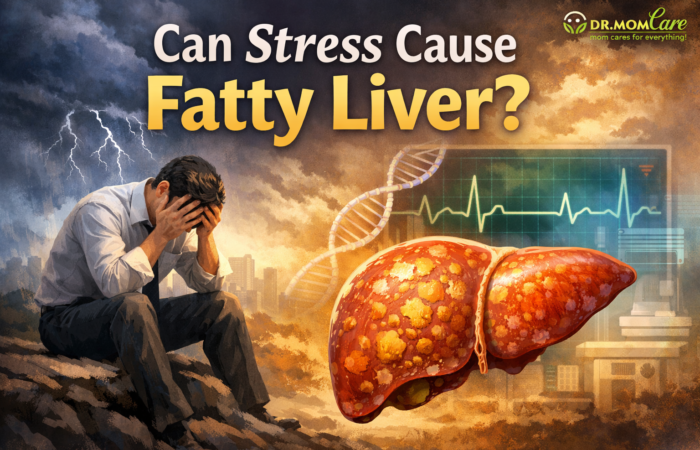
When it comes to reversing fatty liver disease, most people are told to cut back on fat. But not all fats are created equal. In fact, certain fats—specifically omega-3 fatty acids—are not only essential for overall health but also show great promise in helping manage and even reverse fatty liver. So, what’s the truth?
Is omega 3 good for fatty liver?
Let’s break down the science, the benefits, and the best ways to incorporate this “good fat” into your liver-healing journey.
First, What Is Fatty Liver?
Fatty liver disease—also known as hepatic steatosis—occurs when excess fat accumulates in the liver cells. It comes in two main forms:
- Alcoholic Fatty Liver Disease (AFLD) – Caused by heavy alcohol use.
- Non-Alcoholic Fatty Liver Disease (NAFLD) – Often linked to poor diet, insulin resistance, obesity, and high triglyceride levels.
NAFLD is particularly common, affecting nearly one in four adults globally. And while the early stages are often reversible, the condition can progress to inflammation (NASH), fibrosis, and even cirrhosis if ignored.
What Are Omega-3 Fatty Acids?
Omega-3s are a group of essential polyunsaturated fats that the body cannot produce on its own. They must be obtained through diet or supplements. The most important types include:
- EPA (Eicosapentaenoic Acid)
- DHA (Docosahexaenoic Acid) — both found in fatty fish and marine oils
- ALA (Alpha-linolenic Acid) — found in flaxseeds, chia seeds, and walnuts
These fats are known for their anti-inflammatory, heart-protective, and brain-supporting benefits. But how do they relate to liver health?
Is Omega 3 Good for Fatty Liver? Here’s What the Research Says
1. Reduces Liver Fat Accumulation
Multiple clinical studies have shown that omega-3 supplementation can significantly reduce liver fat levels in people with NAFLD. This is especially true for EPA and DHA, the forms found in fish oil.
A study published in the Journal of Hepatology found that people who took omega-3 supplements saw a 20–30% reduction in liver fat compared to those who didn’t.
2. Improves Lipid Profiles
Fatty liver is often accompanied by elevated triglycerides and low HDL (“good”) cholesterol. Omega-3s are known to lower triglyceride levels and increase HDL, improving the overall lipid profile and reducing liver stress.
This is crucial because high triglycerides can exacerbate fat buildup in the liver, accelerating disease progression.
3. Combats Inflammation
Fatty liver isn’t just about fat—it’s about inflammation. Chronic inflammation can damage liver cells and lead to fibrosis. Omega-3s are potent anti-inflammatory agents, helping to calm the immune response and protect liver tissue from ongoing damage.
4. Supports Insulin Sensitivity
Insulin resistance is a major driver of NAFLD. Omega-3 fatty acids have been shown to improve insulin sensitivity, helping the body process sugar more efficiently and reduce fat storage in the liver.
Best Sources of Omega-3 for Liver Health
If you’re looking to add omega-3s to your diet, here are some excellent options:
Animal-Based (High in EPA & DHA):
- Fatty fish like salmon, mackerel, sardines, and anchovies
- Fish oil supplements (preferably high-quality, mercury-tested)
- Krill oil (another potent marine source)
Plant-Based (High in ALA):
- Flaxseeds and flaxseed oil
- Chia seeds
- Walnuts
- Hemp seeds
Note: While ALA is beneficial, the body converts only a small percentage of it into the active forms EPA and DHA. This is why many experts recommend incorporating marine-based sources for liver-specific benefits.
How Much Omega-3 Do You Need?
For general health, the typical recommended dose is 250–500 mg of combined EPA and DHA per day. However, for individuals with fatty liver or high triglycerides, higher doses (1,000–2,000 mg daily) may be beneficial—but always under medical supervision.
Precautions and Considerations
While omega-3s are generally safe, there are a few things to keep in mind:
- Choose high-quality supplements that are third-party tested for purity and potency.
- If you’re on blood thinners, consult your doctor before starting omega-3 supplements, as they can have mild anticoagulant effects.
- Watch for potential digestive issues like burping or fishy aftertaste—these are common but minor side effects.
Final Verdict: Is Omega 3 Good for Fatty Liver?
Yes—omega-3 fatty acids are one of the most well-researched and effective nutrients for improving fatty liver.
They reduce liver fat, lower triglycerides, fight inflammation, and support insulin sensitivity—all key factors in managing and reversing fatty liver disease.
But like any nutrient, omega-3s work best when combined with a whole-food diet, regular physical activity, stress management, and medical oversight. Don’t rely solely on supplements—use them as part of a holistic liver-healing strategy.
Summary
- Omega-3s (especially EPA & DHA) reduce liver fat, triglycerides, and inflammation.
- Best sources: Fatty fish, fish oil, flaxseeds, chia seeds, walnuts.
- Beneficial for both prevention and reversal of fatty liver.
- Safe when taken in moderation and with medical guidance.
Tags:
Subscribe To Get Update Latest Blog Post
No Credit Card Required









Leave Your Comment: